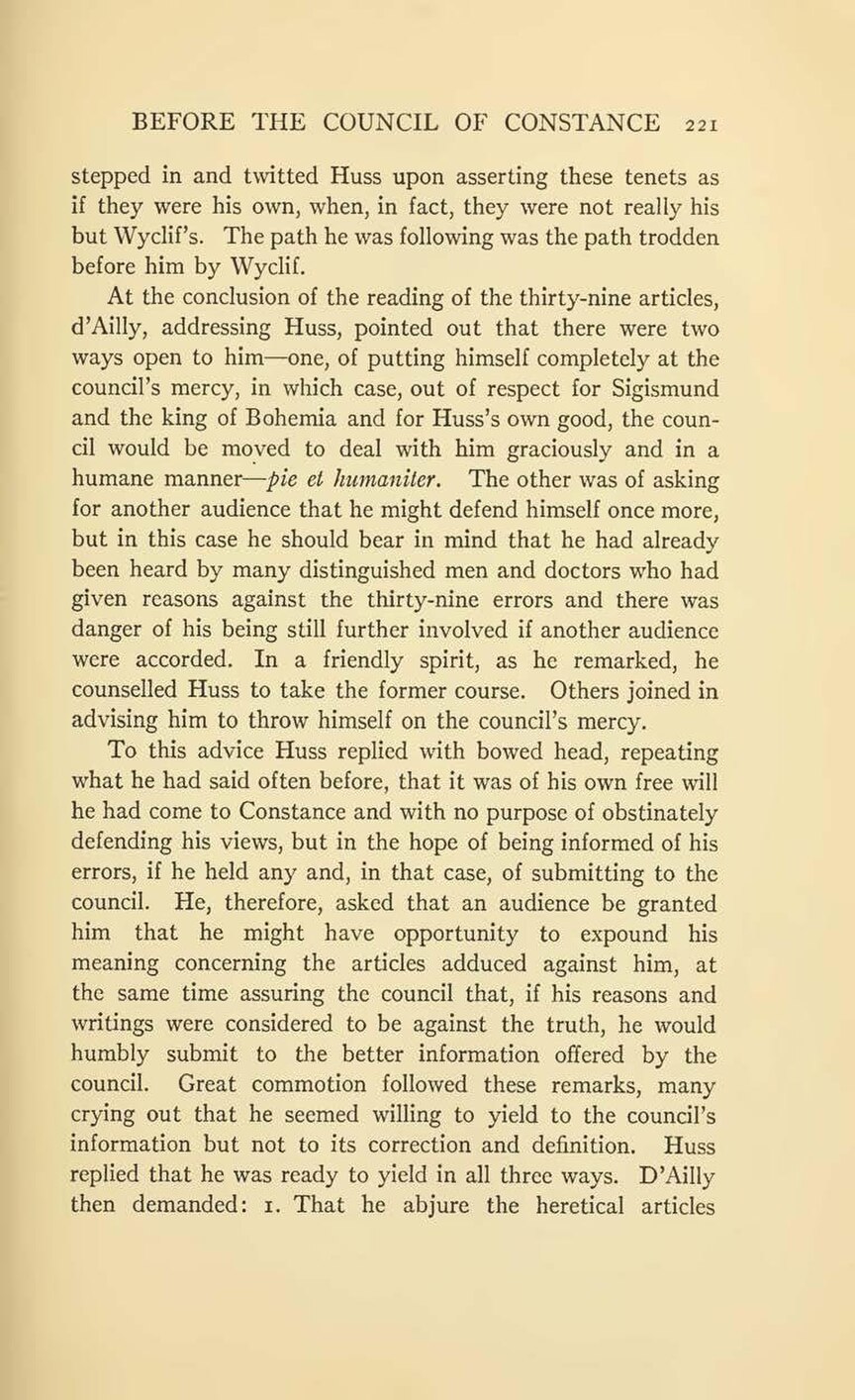stepped in and twitted Huss upon asserting these tenets as if they were his own, when, in fact, they were not really his but Wycliffs. The path he was following was the path trodden before him by Wyclif.
At the conclusion of the reading of the thirty-nine articles, d’Ailly, addressing Huss, pointed out that there were two ways open to him-one, of putting himself completely at the council’s mercy, in which case, out of respect for Sigismund and the king of Bohemia and for Huss’s own good, the council would be moved to deal with him graciously and in a humane manner—pie et humaniter. The other was of asking for another audience that he might defend himself once more, but in this case he should bear in mind that he had already been heard by many distinguished men and doctors who had given reasons against the thirty-nine errors and there was danger of his being still further involved if another audience were accorded. In a friendly spirit, as he remarked, he counselled Huss to take the former course. Others joined in advising him to throw himself on the council’s mercy.
To this advice Huss replied with bowed head, repeating what he had said often before, that it was of his own free will he had come to Constance and with no purpose of obstinately defending his views, but in the hope of being informed of his errors, if he held any and, in that case, of submitting to the council. He, therefore, asked that an audience be granted him that he might have opportunity to expound his meaning concerning the articles adduced against him, at the same time assuring the council that, if his reasons and writings were considered to be against the truth, he would humbly submit to the better information offered by the council. Great commotion followed these remarks, many crying out that he seemed willing to yield to the council’s information but not to its correction and definition. Huss replied that he was ready to yield in all three ways. D’Ailly then demanded: 1. That he abjure the heretical articles
